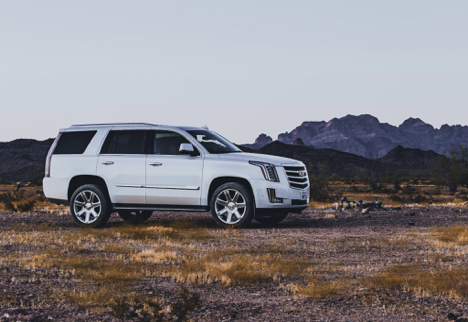Ferrari is now the target of a class action complaint that claims the automaker marketed vehicles with faulty brakes. According to the case filed in federal court in San Francisco, the brakes on some Ferrari models are prone to sudden failure, which can result in unfortunate incidents.
The complaint demands a recall of all impacted automobiles and monetary damages for those who bought damaged autos. Here’s a detailed overview of the class action lawsuit over the Ferrari Defective Braking System.
In-Depth Analysis
The suit asserts that certain Ferrari models’ brakes are likely to fail, resulting in collisions and accidents. The case was filed by two men who say they were involved in accidents due to faulty brakes. They are seeking unspecified damages from Ferrari.
The defects in the braking system are said to affect several Ferrari models, including the California, 458 Italia, and F12 Berlinetta. The lawsuits allege that the brake calipers on these vehicles can seize up, causing the brakes to fail. This can lead to severe accidents for passengers and pedestrians.
Ferrari has not commented on the lawsuit, but the company has been hit with similar lawsuits. A class action lawsuit over Ferrari’s faulty steering systems was filed in 2013. Another suit was brought in 2015 on allegations that Ferrari’s sports vehicles were prone to engine fires.
These cases are filed at a time when authorities are scrutinizing Ferrari more closely. The NHTSA opened an inquiry into claims of Ferrari car engine fires last year. Additionally, the American Securities and Exchange Commission recently disclosed that it was investigating Ferrari’s potential accounting problems.
Potential Damages
The problem affects Ferraris with manual transmissions and is caused by a wear-and-tear issue that can leak brake fluid onto the engine. Ferrari has issued a recall for affected models, but the problem has already caused several fires, leading some to question the safety of these vehicles.
Ferrari has previously been mentioned in the headlines for alleged safety concerns. In 2015, the company recalled its 458 Italia models after reports surfaced that the car’s steering wheel could detach while driving. And in 2016, Ferrari issued a recall for its California T model after discovering that the car’s sunroof could detach and fly off while driving.
Given these past issues, some consumers are hesitant to purchase Ferrari vehicles, despite their luxury status. Whether the company can regain its reputation for high quality and safety will only be determined over time.
Ferrari’s Response
The lawsuit claimed that Ferrari failed to disclose a known issue with the braking system, which could cause the brakes to die suddenly and without warning. In response to the lawsuit, Ferrari issued a statement denying any responsibility for the alleged defects. The company claimed that it had fully disclosed all information about the braking system to customers and that it met all safety standards.
Moreover, Ferrari pointed out that the brake system had been successfully tested in other vehicles without incident. Given the denial from Ferrari, it seems that the lawsuit will continue to progress. It will be interesting to see how this case unfolds and whether or not Ferrari will be held liable for the alleged defects.
Main Concerns of Plaintiffs
The lawsuit, filed by plaintiffs in California and New Jersey, alleges that the brake pads on Ferrari vehicles can wear down prematurely, causing the brakes to fail.
The plaintiffs claimed that this defect had led to accidents and injuries, including one plaintiff who was involved in a car crash when her brakes failed. Ferrari denies the problem with its brakes and has vowed to fight the lawsuit. However, if the lawsuit is successful, it could lead to a recall of Ferrari vehicles and millions of dollars in damages.
Consequences of the Lawsuit
The consequences of this lawsuit could be significant for Ferrari. The plaintiffs may get a sizable monetary award if the action is successful. Additionally, it could damage Ferrari’s reputation and lead to fewer people buying its cars. It is obvious that this is a severe issue with the potential to harm Ferrari, though.
How Can You Stay Informed About the Case?
If you own a Ferrari, you might want to monitor a class-action lawsuit against the manufacturer. The lawsuit alleges Ferrari’s braking system is defective, claiming that the company knew about the issue but failed to address it. If you’re affected by the defect, you may be entitled to compensation.
To stay informed about the case, you can check for updates on the lawsuit website or speak to the Lemon Firm attorneys. You should also consider whether to join the class action or not. If you do, you’ll be represented by an attorney, and you won’t have to pay any legal fees. It’s crucial to keep informed so you can defend your rights.
Significant Benefits of the Lawsuit
The defective brake system will be repaired for free by Ferrari and its dealer network. As a result of the brake defect, however, you may not be compensated for any financial or physical loss. You may be eligible for more compensation by filing a Ferrari brake failure lawsuit if your Ferrari was injured or damaged by the faulty brake system or if you believe you paid too much for it, given the recall.
Our attorneys aim to help you recover damages if you have lost money or experienced sudden brake failure because of Ferrari’s defective brake fluid reservoir cap.
Bottom Line!
A class-action lawsuit has been filed against Ferrari over a braking system defect linked to a number of accidents. You could be eligible for compensation if you were harmed by this flaw.
The skilled lawyers at the Lemon Company have had success in getting our clients compensated who purchased faulty cars, and we can do the same for you. If you wish to discuss your case with one of our attorneys, we are here for you. Case evaluations are always FREE. Call (833) Lemon-firm to speak with a Lemon Law expert today.








